The School of Aerospace Engineering was an awesome proving ground for these engineers.
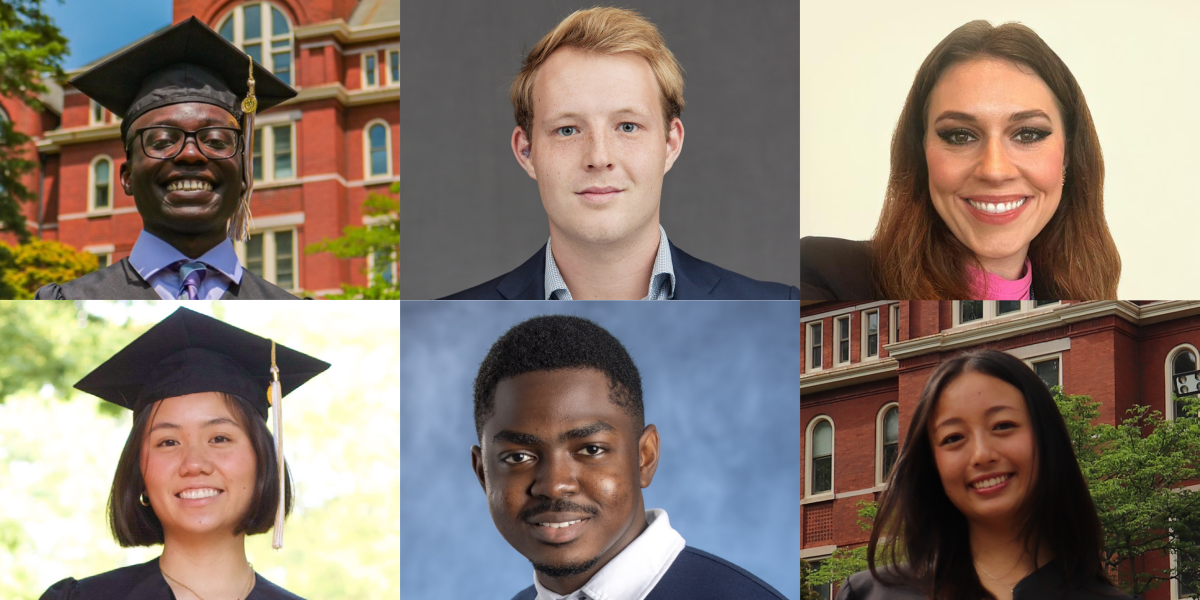
(text and background only visible when logged in)
Jalen Cauley, BSAE 2025
What is your next adventure?
I will be continuing my studies. I’m seeking a master's degree in aerospace engineering through an Air Force program called the STEM Strategic Scholars program (SSP). The Strategic Scholars Program is competitive and only selects 10 people nationwide. I’m honored to have been selected. Starting this fall, I will be conducting research in the Systems Integration Division at GTRI. My tuition will be waived, and GTRI will cover my fees.
What about your next adventure are you most looking forward to?
I look forward to continuing my studies and choosing classes that pique my interest. I will continue my outreach work, which is very important to me. I would not be where I am, whether getting into grad school or going to Georgia Tech, were it not for my mentors along the way. I've already mentored others, but don't want to stop after earning my undergraduate degree. It will be awesome to stay connected with the undergraduate students and the Air Force ROTC members. I had the privilege of being the cadet wing commander, the highest-ranking cadet. I'll be leaving, but I'll still provide mentorship, and I’m looking forward to it. I interviewed for the position to develop a culture of empathetic leaders. It’s essential, especially with so many different perspectives.
Did you have any previous co-op, internship, or research experience in this area?
I started working for the Georgia Space Grant Consortium in the fall of 2021, working closely with the Hines Family Foundation. After my first year, or the summer of 2022, I was awarded the Patti Grace Smith Fellowship. I interned at L3 Harris Technologies, working on their mechanical design team. I returned to L3 Harris Technologies the following summer, working on mechanical testing on their carbon nanotube mesh and radio frequency data from their satellites, and that was exciting. I also conducted research in the Space Systems Design Lab on the propulsion management team working on the Green Propellant Dual Mode (GPDM) system.
How did your educational experience at Georgia Tech help you to achieve your goals?
Georgia Tech exposed me to a wide range of areas within the aerospace industry. So, not only was I able to physically touch machinery, but I also worked with software and hardware. It also taught me soft skills like communication and working in teams. I was able to work in large teams and small teams, whether it be in AE4610, which I'm in now, that has 5-6 people, or whether it be a larger-scale group such as SSDL, working with 20 others. I've been here for four years, and I’ve enjoyed myself. I have probably forgotten more good memories than I can remember. The mentors were important and helped me along the way. Professor Griendling and Alysia Watson were great mentors to me.
What advice would you give to an underclassman who would like to follow the same path?
First, don't shy away from making friends or talking to people in your classes. You'll be surprised by how frequently you see them as you continue through this program. Second, expose yourself to different parts of AE that you may not initially be interested in. The reason being that you may realize what you don't want to do and discover that you love doing this other thing. Third, take the time to mentor others. If we want to create a better environment within Georgia Tech, the aerospace industry, and aerospace as a whole, this is crucial. The goal is to set that foundation for the next generation of engineers. Use your resources, not just the professors, but staff, other students, and organizations to uncover opportunities and to learn more.
(text and background only visible when logged in)
Jalen Cauley
Don't shy away from making friends or talking to people in your classes. You'll be surprised by how frequently you see them as you continue through this program.
Stef Crum, MSAE 2023, PhD AE 2025
What's your next adventure?
After graduating, I will be continuing my role as CEO of Reditus Space, the startup that I co-founded. We build reusable satellites for zero-gravity manufacturing, headquartered in Atlanta.
What about this next adventure are you most excited about or most looking forward to?
I think just being able to see the company grow to the point where we are onboarding a decent amount of people in the next couple of weeks. Seeing it all grow has been incredibly exciting. Specifically, we’ll be hiring for a lot of engineering positions very soon.
How did your educational experience at Georgia Tech help you to achieve your goals?
The doctorate gave me a thorough fundamental engineering background to tackle problems adjacent to it, as well as providing a general overview of a large section of the space industry and what might be possible in the near future. My master's laid the foundation in terms of engineering for the subsequent steps.
Did you have any internship, co-op, or research experience in this area?
Yes, I did some work in hypersonics with Georgia Tech Research Institute (GTRI) last year. Additionally, my doctoral research focused on cis-lunar orbit determination and operations, which involves new architectures for figuring out where things are in the environment and how we can move things around space more efficiently.
What advice would you give to an underclassman who would like to follow the same path as you?
Just try and do things. They might fail, but at some point, they might work. It's a saying that's pretty common in Dutch and has been repeated frequently in the entrepreneurial spirit. Just do stuff.
(text and background only visible when logged in)
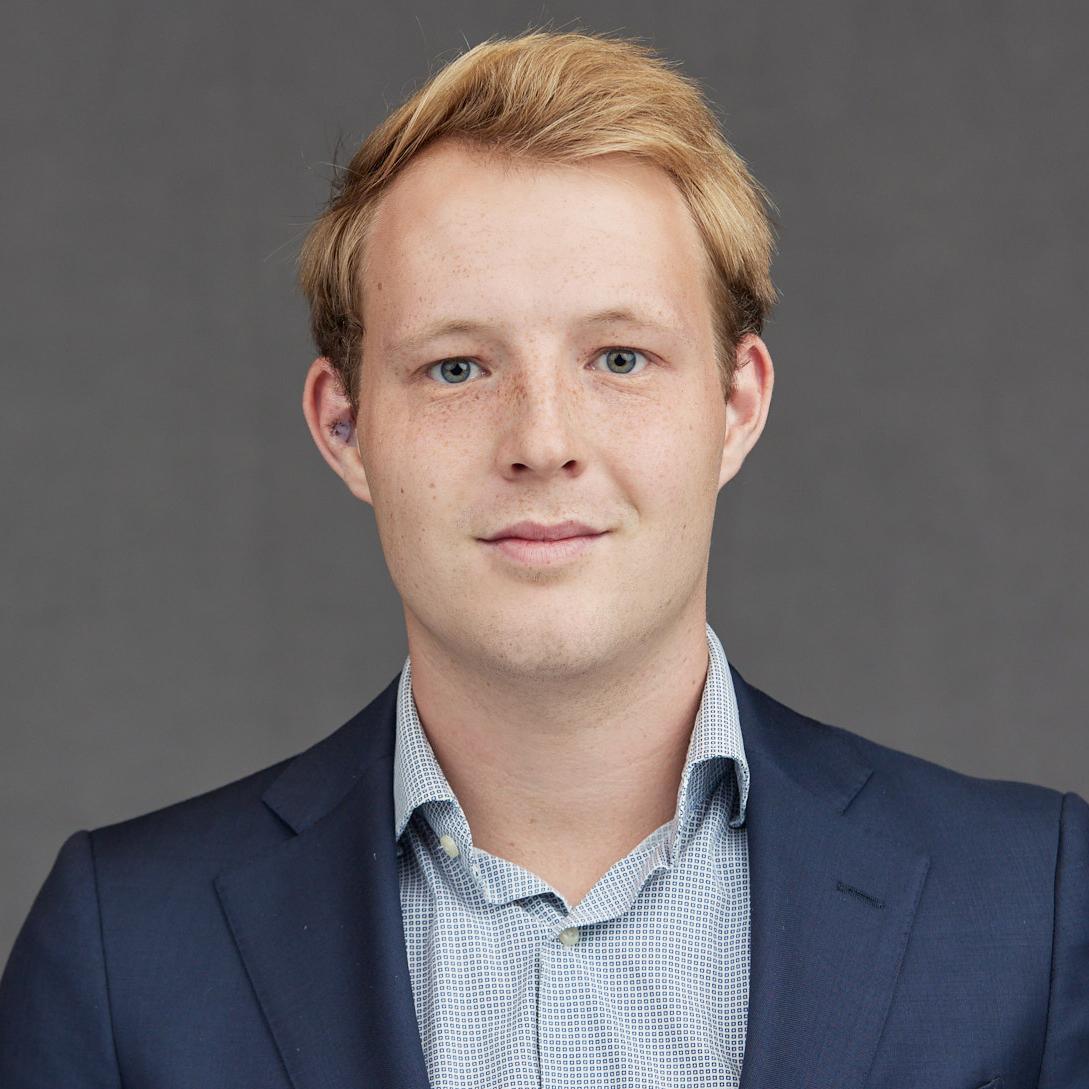
Stef Crum
Just try and do things. They might fail, but at some point, they might work.
Chelsea Johnson, MSAE 2018, PhD AE 2025
What is your next adventure?
I plan to stay in academia in some capacity. I'm considering applying for postdocs at the University of Washington and the Pacific Northwest National Lab. I want to continue working on high-speed large eddy simulation. I think there’s a lot of interesting work in the that area left to be done, especially at hypersonic speeds. But I'm also interested in applying the tools I've learned during my PhD to other problems, such as weather patterns and climate change, which aligns with the University of Washington's atmospheric science department.
What about your next adventure are you most looking forward to?
I'm most excited about the opportunity to work more directly in a team setting and collaborate with others. During my PhD, I had great collaborations with my lab mates and PhD students at other universities. I enjoyed the team aspect and bouncing ideas off each other. I'm looking forward to working with other smart people and having collaborative goals, which will be a refreshing change from the more isolated nature of dissertation work.
Did you have any previous co-op, internship, or research experience in this area?
During my undergraduate time at Union University, I had a really meaningful research experience funded by the National Science Foundation (NSF). I spent the summer at University of Alabama and did computational fluid dynamics (CFD) of a rigid wing sail catamaran. They are essentially like an airplane wing turned on its end. That experience led me to pursue graduate school so I could be involved in more CFD research, specifically projects involving aircraft and hypersonics. I feel like I got lucky in that aspect, finding what I wanted to study right away and stuck with it.
My research explores the negative effects of shockwaves on supersonic and hypersonic vehicles. When they interact with the boundary layer, it creates a very complex phenomenon that is hard to study experimentally and very hard to model. My work specifically seeks to understand and predict these interactions better and mitigate the negative effects of them so that we can achieve very high speeds effectively.
How did your educational experience at Georgia Tech help you to achieve your goals?
The rigor of the program was instrumental. My classes were extremely useful, and professors were knowledgeable, ensuring we learned the necessary concepts well. The PhD process, particularly the qualifying exams, was rigorous and helped refine my knowledge and skills. Collaborating with fellow students and receiving my advisor's (Prof. Oefelein), guidance were also fundamental to my growth as a researcher. These experiences have prepared me well for my future career, ultimately as a professor.
What advice would you give to an underclassman who would like to follow the same path?
I would advise them to grasp onto other opportunities and not be solely focused on their research. Gaining new skills and learning new things along the way is very helpful. Also, don't be afraid to ask for help and utilize all the resources around you, from professors to fellow students. Remember that you're not expected to do everything on your own, and seeking help and inspiration from others is crucial.
(text and background only visible when logged in)
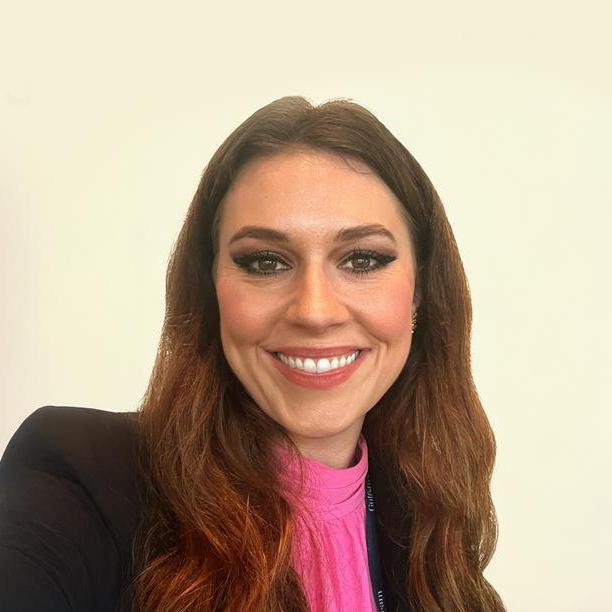
Chelsea Johnson
Grasp onto other opportunities and not be solely focused on their research. Gaining new skills and learning new things along the way is very helpful. Also, don't be afraid to ask for help and utilize all the resources around you
Sabrina Mayor, BSAE 2025
What is your next adventure?
I'll be working for Blue Origin as a propulsion engineer at Cape Canaveral.
What about your next adventure are you most looking forward to?
I’m looking forward to starting my full-time career in a sunny place like Florida. Coming out of college, I wanted to be on the East Coast near my family in New Jersey. Since freshman year, I’ve wanted to be a propulsion engineer. I tried different things throughout my four years to discover what made me happy. At the end, I was offered a propulsion job.
Did you have any previous co-op, internship, or research experience in this area?
I worked at the High-Power Electric Propulsion Laboratory (HPEPL) since spring of 23 through the spring of 24 with Dr. Walker, and grad students like David Jovel. I mostly helped with running experiments, doing CAD models for the experiments, and then doing some data analysis. Overall, I acquired a lot of knowledge from the work. David was an excellent mentor in the lab, and he made sure I was learning. In the summer of 2023, I worked at Astrobotic in Mojave, CA. I was testing their hopper and doing other projects. I learned a lot about liquid rocket engines, which I had previously covered in my aerospace classes. So that was cool. Then, in the Spring of 2024, I worked at Stoke Space in Moses Lake, Washington. As a test engineer, I focused on building up and maintaining other test stations, and then I also tested some of their thrusters. In the summer of 2024, I worked at Blue Origin's launch site in Van Horn, Texas. I worked on testing 3-PM engines and upgrading the test stand. Currently, I’m working in the Nuclear Thermal Propulsion lab, in the nuclear department with Dan Kotlyar. We're working on mission analysis for a nuclear reactor mission.
How did your educational experience at Georgia Tech help you to achieve your goals?
At Georgia Tech, there are a lot of opportunities to apply what you learn outside of the classroom. I used the Aerospace Machine Shop to build things. I joined the Ramblin’ Rocket Club, where I could apply the engineering principles I learned in class. The classes and working with professors in the research labs were crucial to my success. The student organizations and my research lab helped me get my first internship. The networking opportunities at Georgia Tech helped me achieve my goals. I also made great connections as a part of the Filipino Student Association and the AE ambassadors.
What advice would you give to an underclassman who would like to follow the same path?
Try to connect with people in research, student clubs, and different companies. As you do, you will discover what aligns with your career goals and meet people along the way. Even if you don’t stay with the first job/lab you choose, the time spent isn’t wasted because you learned something new and met others. You can still enjoy the experience. Get exposure to the various aspects of aerospace through doing research in the labs and working with student organizations. I gained mentors working in the lab and in the rocket club who helped me learn and taught me how to do job interviews.
(text and background only visible when logged in)
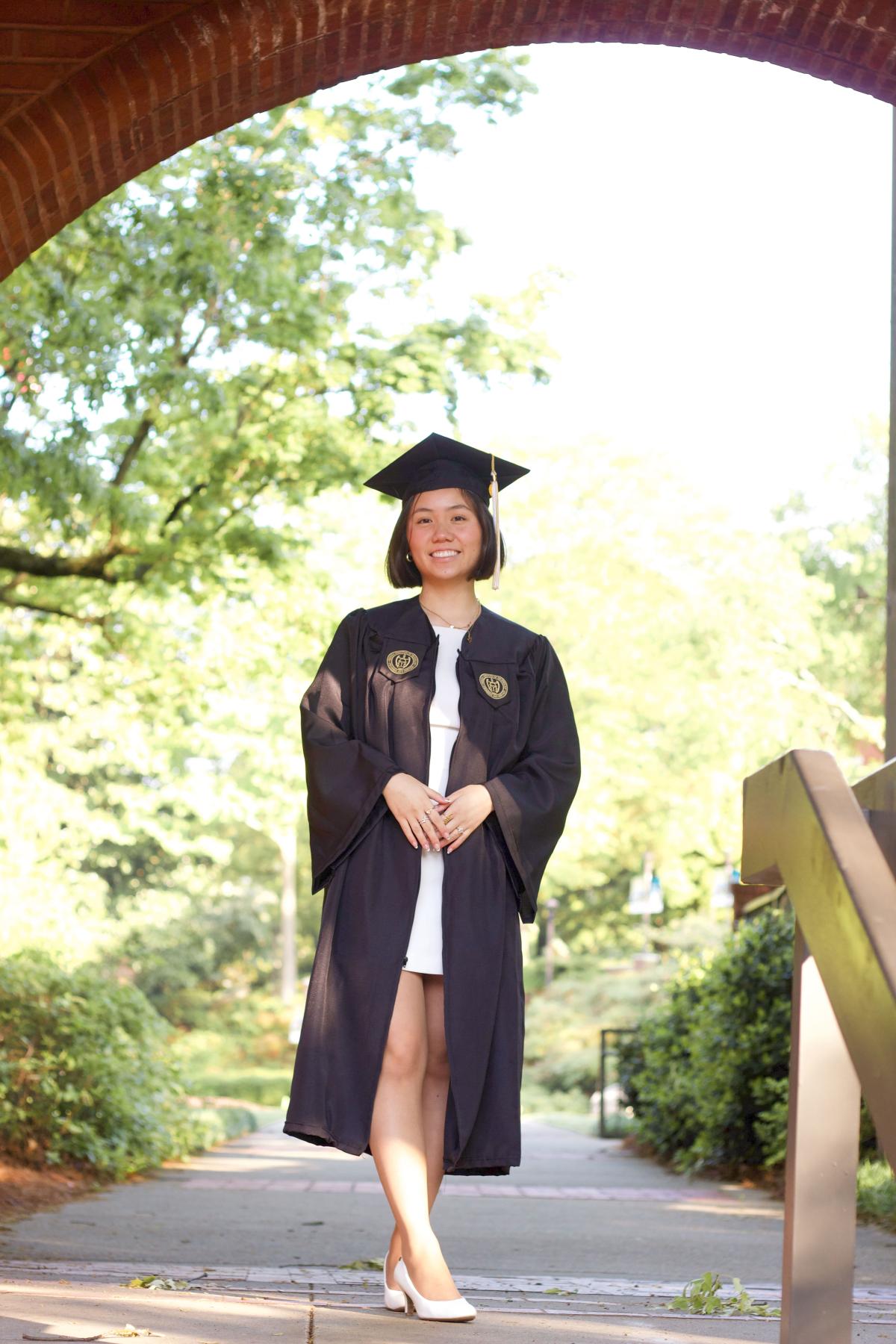
Sabrina Mayor
Try to connect with people in research, student clubs, and different companies. As you do, you will discover what aligns with your career goals and meet people along the way.
Papa Quainoo, BSAE 2025
What is your next adventure?
I’m applying to graduate schools, including Georgia Tech.
What about your next adventure are you most looking forward to?
I am excited to apply the things I have learned at Georgia Tech, like solving hard problems. It's been great learning all the theory. If you're going to learn about aerospace, Georgia Tech is the place. It’s given me a bunch of theoretical experience.
Did you have any previous co-op, internship, or research experience in this area?
I transferred to Georgia Tech from Georgia State University. My first summer at Tech, I studied abroad in Limerick, Ireland. In the summer of 2023, I did research with Dr. Sankar, working on computational fluid dynamics. One of the projects I enjoyed was analyzing the fluid flow. It was one of the experiments that we worked on that excited me, and I was like, this is something I may want to look into in the future. In 2024, I received the Patti Grace Smith Fellowship and worked with Airbus, U.S. Space Defense Inc. for summer. I was an assembly test and launch operation engineer, creating models for their satellite program. We also did assembly, testing and structural analysis on all of that. Currently, I work with Senior Research Engineer Selcuk Cimatalay in the Aerospace Systems Design Lab. I’ve been working with them for two semesters on model-based system engineering. One of the main projects I enjoyed working on was the Mars Rover Mission using methods of systems to essentially create and model the mission.
How did your educational experience at Georgia Tech help you to achieve your goals?
Georgia Tech pushed me. It gave me the opportunity to be around goal and detail-oriented people. I usually found myself in a room full of people who were passionate about the work, and that was motivational. I took advantage of the resources that Georgia Tech offers, like professor office hours, club meetings, different societies, and it gave me the push I needed to accomplish what I wanted.
What advice would you give to an underclassman who would like to follow the same path?
There is beauty in self-reflection, but a lot of us just forget about it. I know this because I do it a lot. I will not do well in an exam, and then I'll generalize it. I’ll say things like, Oh, I really need to study harder, or I need to do better, or I don't think it's me this time. It can be that general because it's not one-size-fits-all. Self-reflection is important before improving or implementing change. Bounce back and get it better.
(text and background only visible when logged in)
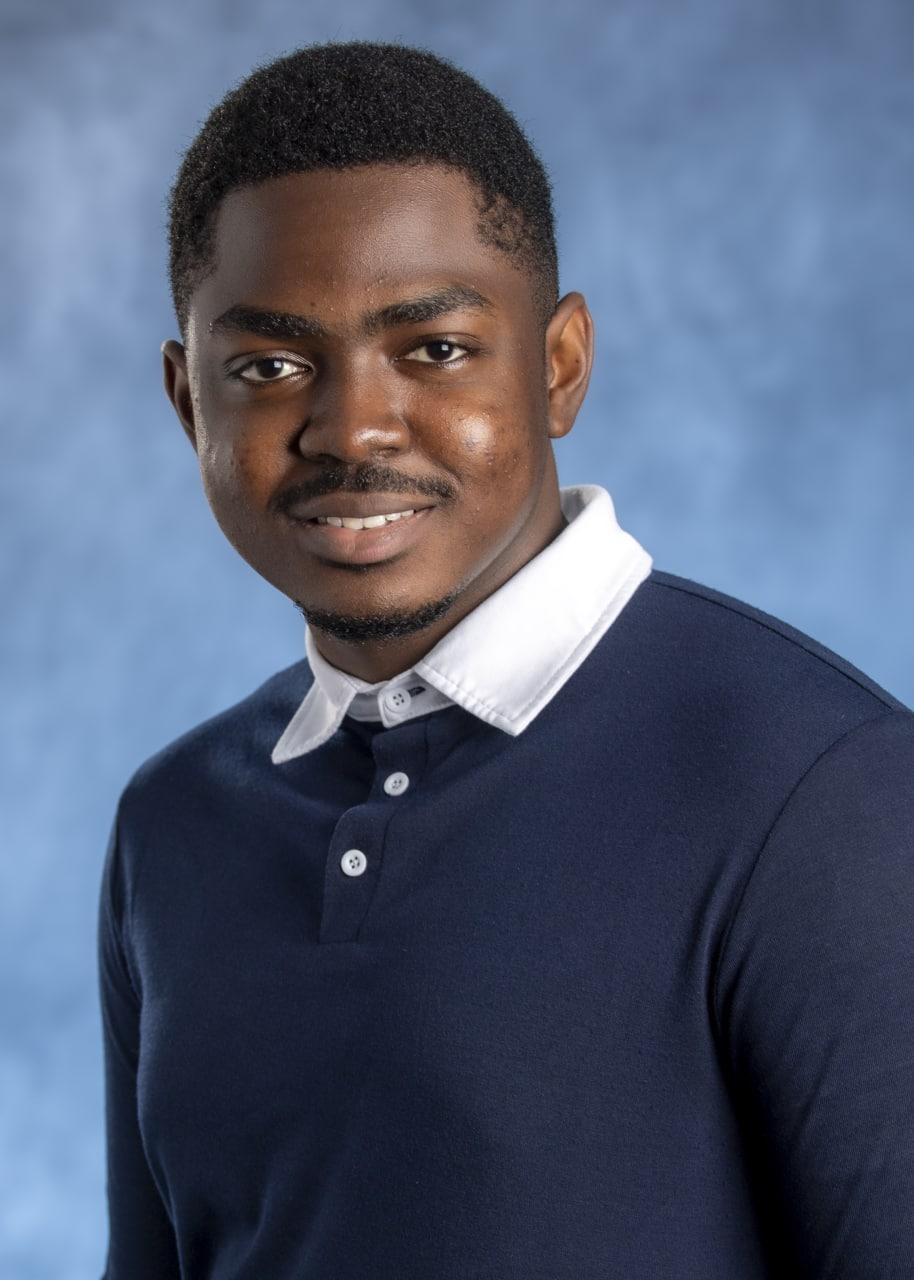
Papa Quainoo
Self-reflection is important before improving or implementing change. Bounce back and get it better.
Ellen Wang, BSAE 2025
What is your next adventure?
I will be returning to the BS/MS program in the fall. The Georgia Tech undergraduate curriculum is really broad and covers a lot of different sectors of aerospace. I wanted to learn more in-depth about structures and propulsion, and I've only had one class on each. So, being able to take a couple more classes will help me better prepare for my career. This summer, I will be interning at Rocket Lab again on the propulsion team. Currently, I work in the Space System Design Lab (SSDL), but I will be switching over to the Aerospace Systems Design Laboratory (ASDL) for graduate school.
What about your next adventure are you most looking forward to?
Moving from being an undergraduate to a grad student will definitely be a very big change in my life. As a graduate student, I will experience school in a different way that I’m looking forward to. I will also be a Graduate Research Assistant in ASDL and will be spending a lot of time in the lab.
Did you have any previous co-op, internship, or research experience in this area?
The summer of 2023, I worked at Pratt and Whitney in East Hartford, Connecticut on the engine design and integration team. My group was the high-cycle fatigue group, and that was a structure-oriented role. I still keep in touch with my manager today. In the spring of 2024, I did an internship at NASA Johnson Space Center working in systems engineering, and that was my first systems engineering experience. There were things that I liked and didn't like about systems engineering. I liked the NASA Johnson Space Center a lot. It was a good experience to understand that maybe systems engineering wasn't totally the right path for me. Even though I did enjoy it, I wanted to do something a little more technical, like my first internship. Then I did an internship at Rocket Lab as a propulsion intern, and that experience came from my Brooke Owens Fellowship. I was on the design team, and I liked it and will be returning this summer.
How did your educational experience at Georgia Tech help you to achieve your goals?
My research and lab work helped me the most. I got involved in research pretty early on at the end of my freshman year. I worked in the lab with Dr. Lightsey in SSDL. There was a call for students who wanted to do lab research sent out to the AE Listserv. I responded to the e-mail and ended up joining SSDL and I’ve been in that lab ever since. It’s been three years now, and I've been able to lead a couple of projects. It's definitely been a big part of my college experience. I've been on three different hands-on projects. The projects have allowed me to design things. Being in the lab, getting to work with flight hardware, and knowing that the stuff you're touching is going to space is super exciting. Suiting up fully for the clean room, I felt like a mad scientist with the hair net on and everything. Also, in that lab, there is a lot of autonomy because all of the projects that I worked on were completely student-led. So, I've been able to take on a big role, especially this past semester, which has been the integration of the current satellite project. It's been really busy this semester because everyone needs to be on deck to fully build our satellite. I've met a lot of really good people in that lab as well.
Working in student organizations has also been important. I was a part of the Yellow Jacket Space Program (YJSP), the Student Rocketry Club, and it was really hands-on. I was able to help build an engine test stand for the club. It was a good learning experience because a lot of the older members in that club have done a ton of internships. They taught me a lot of information I didn’t learn in the classroom because in the classroom, it's a lot of theory and equations. In the real world, you need to know how to apply the theory.
What advice would you give to an underclassman who would like to follow the same path?
Get involved really early on, whether it's research or a club. Anything, not just an academic club, just a club where you will continually meet people. But in an academic sense, definitely join an academic club and stick with it. When you do research, you get to do physical stuff that you don't get to do in class, like building and using hardware in the machine shop. Make friends in your classes. Some of my closest friends are people that I met in my freshman and sophomore year in my aerospace classes. The challenging aerospace curriculum has bonded us through good times and some not-so-good times. So, have a good group of friends that you can rely on to take classes with.
(text and background only visible when logged in)
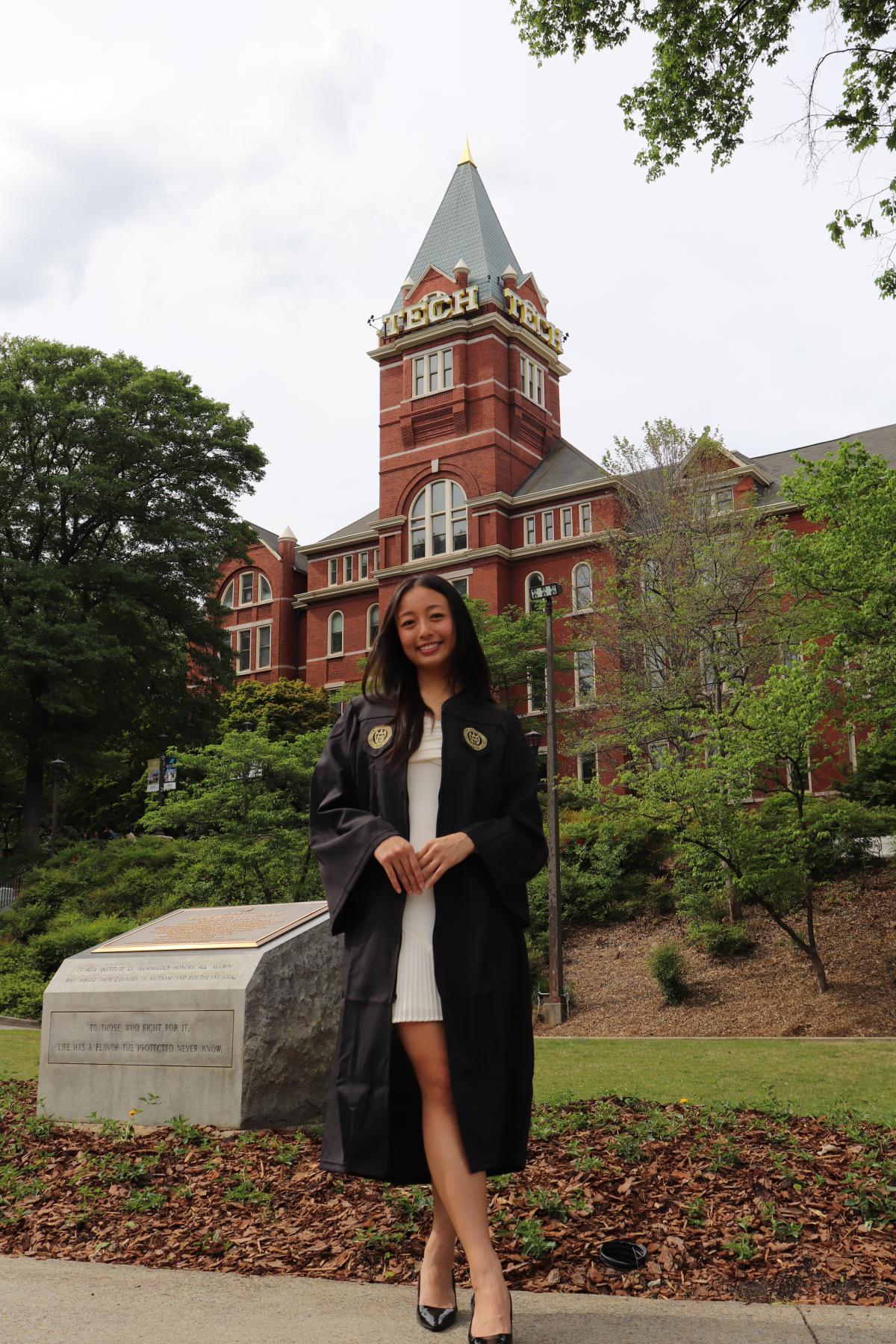
Ellen Wang
Some of my closest friends are people that I met in my freshman and sophomore year in my aerospace classes. The challenging aerospace curriculum has bonded us through good times and some not-so-good times.